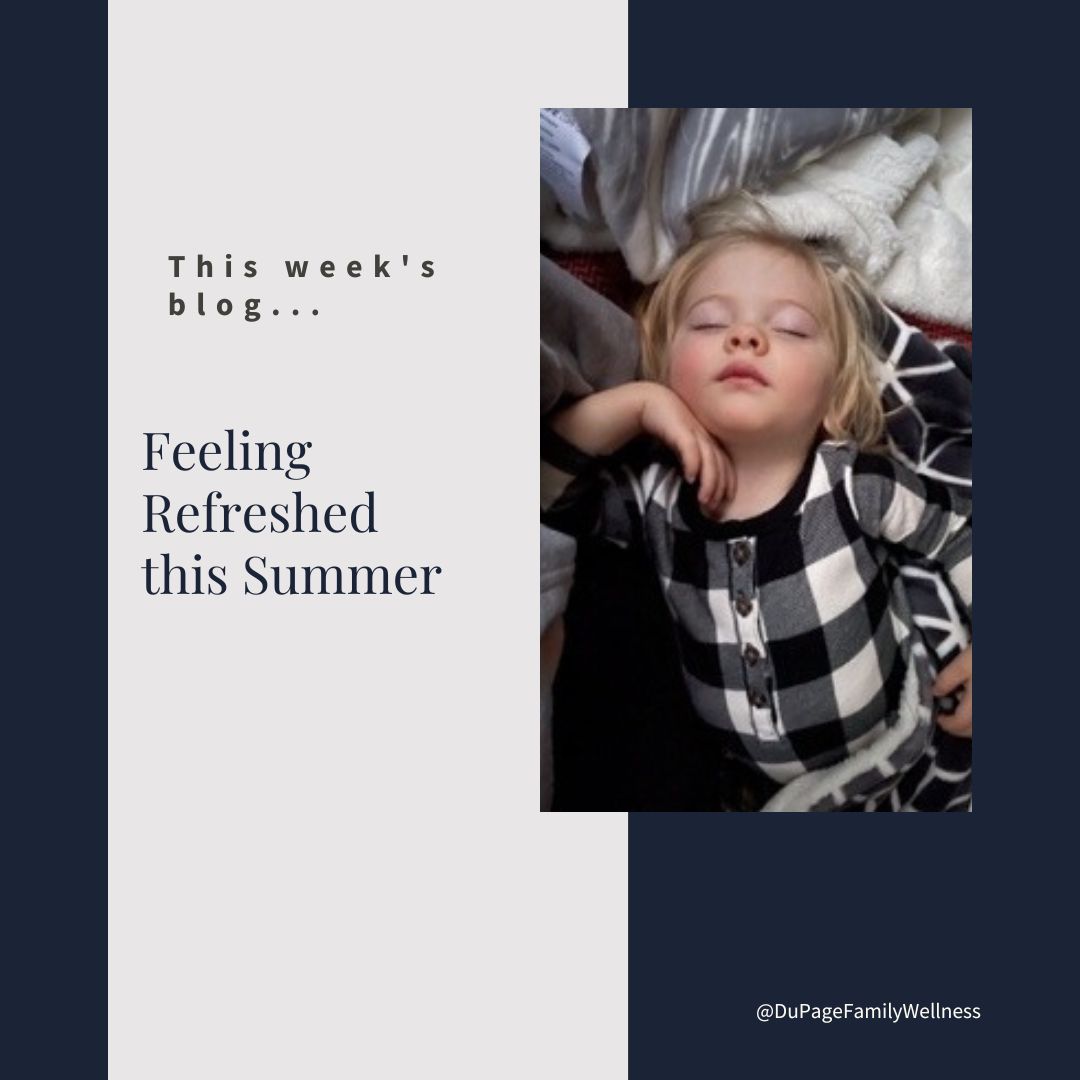 Summer is a great time to grill out. It lets you enjoy the warm weather, keeps your kitchen cool, and makes clean-up easier. It is a fun and delicious way to quickly put dinner on the table, especially if you marinate your meat the day before.
Summer is a great time to grill out. It lets you enjoy the warm weather, keeps your kitchen cool, and makes clean-up easier. It is a fun and delicious way to quickly put dinner on the table, especially if you marinate your meat the day before.
My favorite things to make are chicken thighs, sliders, eggplant, carrots, and zucchini. But, are those things the healthiest choices or should we choose meatless options? My answer might surprise you.
If you have moral reservations about eating animal products feel free to jump down to the “plant-based” sections at the end of the blog. I will be focusing on evaluating these products from a physical health perspective.
Let’s evaluate meatless products, so you can make informed choices about what you put in your body.
The Basics
Let’s first define what we mean by a vegetarian or vegan diet. Most people know that being vegetarian means that you don’t eat meat, while vegans don’t eat any animal products at all (no honey, eggs, milk, cheese, etc.).
It is important to note that not all vegetarian or vegan food is healthy. Just think about soft drinks, Oreos, potato chips, and candy. Many of them are free from animal products, but would not be considered healthy.
Meat Alternatives
Since vegan and vegetarian diets exclude meat, there is a big market for alternatives that mimic traditional diets. The plant-based foods became a $3.3 billion industry in 2018. You can find chicken strips, hamburgers, bacon, and sausage alternatives in stores today.
Unfortunately, these products contain questionable ingredients. According to Sarah Keough (LDN), “Today’s popular plant-based meats barely support the word ‘plant.’ They are instead composed of protein isolates, synthesized nutrients, processed oils, and a host of other additives connected with various health issues.”
Marketing can make unhealthy food look healthy, check out the Making Anything a Health Food blog post. So, read the ingredient label to see for yourself what you are putting in your body.
Questionable Ingredients
Canola or sunflower seed oils are often used in meat alternatives. They are high in omega-6 fatty acids which cause inflammation in the body. Inflammation is a huge factor in most diseases, so we must question the wisdom of consuming these products.
Another ingredient that may cause harm is the GMO Soy Leghemoglobin. It is what gives meat alternatives the meaty flavor and appearance. It is found in small amounts in nature, so it needs to be manufactured in a lab. It is fairly new for humans to consume it in any significant amount.
It is always better to eat foods that are made in nature rather than products produced in a lab; the healthiest foods consist of simple real food ingredients.
Read more ...
 Enjoying your summer starts with a good night’s rest. Feeling refreshed helps you savor the moments of pleasure in each day. It gives you the energy to have adventures and have fun with the people you love.
Enjoying your summer starts with a good night’s rest. Feeling refreshed helps you savor the moments of pleasure in each day. It gives you the energy to have adventures and have fun with the people you love.
When you are short on sleep, it is difficult to enjoy the special moments. You may feel irritable with the people around you for "no reason." This can leave you wondering what is wrong with you. But, maybe it doesn't have anything to do with you; maybe it is your sleep habits.
Let's look at some tips to get you quality sleep that will leave you feeling refreshed.
Tips for a Good Night
Making the most of the time you sleep will help you feel more rested. Having good sleep hygiene will make a big difference. Here are some ideas to get you started…
- Morning Light - get bright light in the morning. It is the most important habit for getting a good night’s sleep. The morning light helps reset your circadian rhythm setting you up for quality sleep.
- Bedroom Environment - sleep in a cool, dark room with black-out curtains. Cover electronics that emit light. Keep it quiet or consider a sound machine. Only use your bedroom for sleep and sex.
- Light Exposure - minimize screen time for three hours before bed, use blue light glasses, or consider a program like F.lux. Dim the lights to prepare your body for sleep as bedtime gets closer.
- Daytime Movement - take the stairs, use a standing desk, take time to stretch, or exercise to keep from being sedentary during the day.
- Nutrition - You may sleep better with a lighter dinner or a bedtime snack. Generally, you will benefit from not being overly full or hungry. Be sure your diet isn’t too low carb or low fat.
- Caffeine & alcohol - these interfere with your circadian rhythm. Limiting them, especially later in the day, will help you sleep better at night.
- Stress - deep breathing, meditation, yoga, or even getting together with friends may help you deal with stress.
- Comfortable Bed - invest in a quality bed. Lack of sleep can harm your body, so don’t feel bad spending more to get something nice if you can.
- Waking During the Night - Dr. Kristen Allott recommends keeping a “lizard brain treat” by your bed if you wake up at night. Look at her website for more information.
Sleep hygiene is important, but no amount of sleep hygiene will help if you don’t allow enough time for sleep! Author and professor Mathew Walker says, “You have more of a chance of being struck by lightning than you do of being in that tiny, tiny minority of people that can thrive with fewer than 7 ½ to eight hours of sleep.”
Check out "Are You Getting Enough Sleep" to see if you are giving yourself enough rest each night.
Enjoy your summer activities by getting enough quality sleep. When you feel refreshed, everything is better.
Dr. Jamie
 Getting enough “white space” in your day will strongly impact how much you enjoy the summer. The summer is supposed to be a time to relax, but often becomes filled with activities and obligations.
Getting enough “white space” in your day will strongly impact how much you enjoy the summer. The summer is supposed to be a time to relax, but often becomes filled with activities and obligations.
Spending time at the pool, taking a hike, or attending a barbeque might not seem like work; but even enjoyable things take time and energy. It can become overwhelming if we do not balance them with downtime.
If you think you are too busy for white space, this may be when you need it the most. It is possible to incorporate white space in everyday life; it just takes some intention.
Let’s look at practical things you can do this summer to make room for white space.
What is White Space?
Leo Babauta from Zen Habits explains that white space means you “remove non-essential items from your life, your workday, your surroundings, your possessions, and leave the essential items with space around them.”
White space does not tend to happen on its own. While it is not complicated, we need to create it intentionally. Here are some ideas about how to make white space a reality in your life.
Schedule
Saying ‘yes’ to one thing is saying ‘no’ to something else. There are only so many hours in the day, so think before you commit.
Ask yourself if you have the capacity for the event. Including the time to prepare, drive, clean up, and wind down from the event. Recognize that a two-hour event may become a four-hour commitment if you consider what leads to and follows it.
Guard your time for the things that make you feel good. It is legitimate to decline an invitation because you do not want to do something; you do not have to explain yourself. Your plans to stay home relaxing, reading, or doing a project are valid reasons to decline.
If you have trouble declining offers, read this article's “15 Best Ways to Say No” list.
Workday
Get a clear picture of important tasks and a realistic idea of how long they will take. Base this on a steady pace, not a frantic one. Communicate this with others on your team as well as your boss. If you feel overwhelmed, ask for help and delegate tasks when appropriate.
Minimize distractions by having boundaries with your coworkers. Don’t be afraid to tell them you are in the middle of something now but are glad to meet later in the day.
Focus on one task at a time when you can; try not to multi-task. Keep your desk clean and clutter-free (this is not my strong point). Take short breaks throughout the day even if it’s just stretching or taking a few deep breaths.
Surroundings
In your home, keep tables, counters, and other flat surfaces clear. Minimize decorations to prevent them from overwhelming your space. Make a cozy spot where you relax, and let others know when you need time there by yourself.
Get in the habit of taking everything that does not belong out of your car whenever you finish an errand. If you have a spouse or children, engage their help in keeping it clean. Keep a microfiber cloth in your car for quick wipe-downs.
Organize your screen phone by putting most of your apps in folders. Simplifying your home screen makes it easier to find what you need and eliminates the visual clutter. We view the home screen on our phones multiple times a day, so it can make a bigger difference than you make expect.
Read more ...
 Let’s hope you are not above average, or even average because the average adult in America spends over 2 hours on social media each day (1). If this is true for you, you are spending the equivalent of 32 days a year on social media.
Let’s hope you are not above average, or even average because the average adult in America spends over 2 hours on social media each day (1). If this is true for you, you are spending the equivalent of 32 days a year on social media.
That’s equivalent to over 4 ½ weeks on these platforms each year. This might seem impossible, but if you track your usage it is surprising how quickly it adds up. Even social media proponents would have difficulty justifying the hours spent on them.
Despite the benefits of these platforms, many believe overusing them is detrimental to our well-being. Since there are limited hours in the day, we must question what we are missing out on while online and ask ourselves if real-life experiences would be better for our well-being.
Let’s consider the value and cost of social media in your life.
Quiz
It is helpful to get an objective perspective on your social media consumption. The health and wellness website, Balanced, provides a valuable tool. It is the “Are You Addicted to Social Media?” quiz. It provides a framework to consider how much time you spend on these platforms and how they impact your life.
In my opinion, the guidelines they use to determine problematic social media consumption are far too generous. I am surprised at the amount of time they believe can be healthy. Any answer higher than a “b” would concern me. Please remember that while you read the interpretation of your quiz. You can use the link here to take the quiz.
Mental Health Considerations
It is fun to connect with the friends we have in real life on social media. When used to enhance existing relationships, social media has been found to reduce loneliness. The same is true when social media is used with the motivation of forging new friendships. (2)
However, seeing the highlights of people you follow can lead to feelings of loneliness, depression, and fear of missing out. A study of 18 to 22-year-olds at Penn State University found that limiting students' social media consumption to 30 minutes a day led to “significant decreases in both depression and loneliness.” These findings were even more pronounced for those who were more depressed at the beginning of the study. (3)
Physical Connection
The connection between social media use and loneliness may indirectly impact physical health. A meta-analytic review of loneliness and social isolation found substantial evidence “that individuals lacking social connections (both objective and subjective social isolation) are at risk for premature mortality. (4)
It found “that heightened risk for mortality from a lack of social relationships is greater than that from obesity, with the risk from social isolation and loneliness (controlling for multiple other factors) being equivalent to the risk associated with Grades 2 and 3 obesity. (4)
Furthermore, the analysis quotes a report where researchers predicted loneliness will reach epidemic proportions by 2030 unless action is taken.
Read more ...

We are lucky to live in an area with many forest preserves and nature areas where movement happens naturally. With so many amazing places to explore, don't let your movement become repetitive, boring, or expensive.
It doesn't have to be fancy or meticulously planned out. Schedule some time, pick a place or activity, and have some fun. The nice weather days will only be with us for a while, so take advantage of them.
Getting out in nature to do something active is good for your mental and physical health. When you don't feel like you have the time for something active outside, it is probably when you need it most. You can benefit from this practice by creatively working it into your day.
Let’s look at some ways to enjoy this weather in an active way you love!
Everyday Life
Try to get outside for a little while every day. It doesn't even matter what you do. Just getting out tends to make you more active and can be refreshing.
- Take a walk after dinner
- Find a parking spot that will make you walk
- Bike places when you can
- Pick active outings when getting together with friends
- Carry your child or give them a piggyback ride to the car, lunch table, etc.
- Talk and walk when having a meeting with a coworker
- Take your phone calls outside
Make It Enjoyable
You will move more if you pick activities you enjoy instead of things you think you should do. Don't choose something you dread; choose something that will be life-giving. You should look forward to your movement and feel energized afterward.
Choose your activities based on your personality and current needs.
- Do you need some time alone?
- Would you prefer some company?
- Do you need to start small?
- Are you ready for something more intense?
What type of activities would fit best with your answers?
- Go to the park
- Play with your kids
- Take a walk with a friend or coworker
- Go for a walk alone
- Ride a bike
- Do a yoga video
- Swim some laps in solitude
- Enjoy water slides with friends
- Jump on a trampoline playfully
- Play hopscotch
- Have a water balloon fight (get super fun reusable ones here)
- Jump rope vigorously
- Take a dance class
- Go rock climbing (Vertical Endeavors in Glendale Heights)
- Play tennis
- Learn pickleball (at Warrenville Park District)
- Explore your city (or a city near you) on foot
Excursions
Many outdoor places can be enjoyed in a brief visit, but taking a few hours to explore them will make it an especially fun experience.
Let this be the year when you discover an outdoor activity that you love. Don't be afraid to try something new - canoeing, archery, dancing, etc.!
Dr. Jamie
 Summer is a great time to grill out. It lets you enjoy the warm weather, keeps your kitchen cool, and makes clean-up easier. It is a fun and delicious way to quickly put dinner on the table, especially if you marinate your meat the day before.
Summer is a great time to grill out. It lets you enjoy the warm weather, keeps your kitchen cool, and makes clean-up easier. It is a fun and delicious way to quickly put dinner on the table, especially if you marinate your meat the day before.

 Enjoying your summer starts with a good night’s rest. Feeling refreshed helps you savor the moments of pleasure in each day. It gives you the energy to have adventures and have fun with the people you love.
Enjoying your summer starts with a good night’s rest. Feeling refreshed helps you savor the moments of pleasure in each day. It gives you the energy to have adventures and have fun with the people you love. Getting enough “white space” in your day will strongly impact how much you enjoy the summer. The summer is supposed to be a time to relax, but often becomes filled with activities and obligations.
Getting enough “white space” in your day will strongly impact how much you enjoy the summer. The summer is supposed to be a time to relax, but often becomes filled with activities and obligations.  Let’s hope you are not above average, or even average because the average adult in America spends over 2 hours on social media each day (1). If this is true for you, you are spending the equivalent of 32 days a year on social media.
Let’s hope you are not above average, or even average because the average adult in America spends over 2 hours on social media each day (1). If this is true for you, you are spending the equivalent of 32 days a year on social media.
